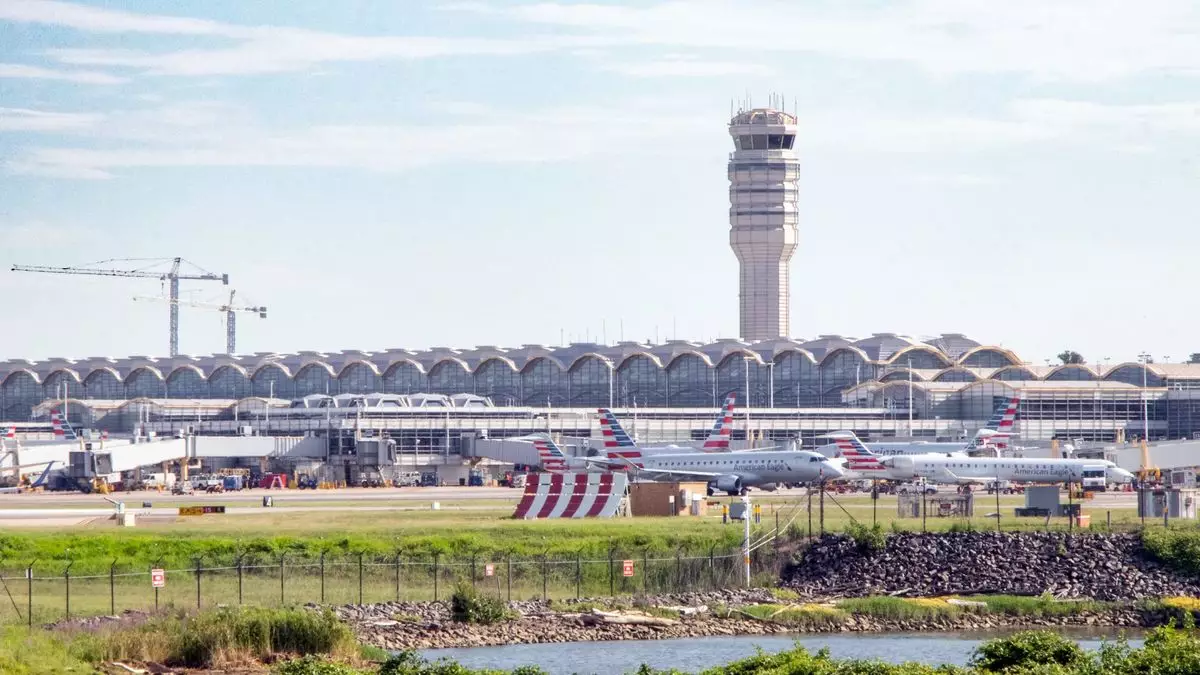The competitive environment surrounding air travel at Washington Reagan National Airport has taken a significant turn with the Department of Transportation’s (DOT) preliminary decision regarding five new daily slot pairs for flights beyond the established 1,250-mile perimeter. A recent order revealed that Alaska Airlines, American Airlines, Delta Air Lines, Southwest Airlines, and United Airlines are the provisional recipients of these coveted slots, facilitating direct connections to bustling destinations such as San Diego, San Antonio, Seattle, Las Vegas, and San Francisco.
The issuance of these slot pairs stems from legislative changes included in this year’s Federal Aviation Administration (FAA) reauthorization, enacted in May. This legislation not only highlights a growing demand for air travel but also aims to address operational challenges at one of the nation’s busiest airports. Historically, the 1,250-mile rule imposed limitations on long-haul flights, pushing airlines to engage in lobbying efforts to secure new route opportunities. Each designated airline stands to capitalize significantly on this new potential, as these routes are expected to attract a substantial volume of travelers seeking direct services to popular destinations.
While the newly allocated slots present exciting prospects, competition inevitably arises in this mixed bag of winners and losers. For instance, Alaska Airlines will uniquely dominate the San Diego route, while American Airlines will hold the exclusive position for San Antonio. Conversely, Delta and Southwest Airlines are set to face off against established incumbents, fostering an environment ripe for price competition and improved service quality. United Airlines, with its added flight to San Francisco, is also expected to engage in competitive strategies against Alaska.
The landscape creates varied implications for travelers—while increased competition may drive prices down, the specific market dynamics will determine how airlines structure their offerings and services.
Despite its intentions, several airlines—namely JetBlue, Spirit, and Frontier—were left on the sidelines, unable to secure any of the sought-after slot pairs. Particularly notable is the DOT’s ruling that rejected Spirit and Frontier on eligibility grounds linked to existing flight operations within the perimeter. JetBlue’s application fell short, largely due to its already established service to San Juan, leaving it without strategic access to these new routes.
This competitive outcome raises questions about future market conditions for these airlines amidst expanding opportunities tied to within-perimeter operations. The fallout might instigate reevaluation among the rejected carriers, urging them to reassess their fleet structures and route networks to enhance their positioning in the market.
The decision is not set in stone; airlines and stakeholders are entitled to submit objections for a two-week period before the decision becomes finalized. Once confirmed, the selected airlines will have a 90-day window to launch their operations. This timeline offers both challenges and opportunities for the winning airlines as they prepare for the anticipated increase in traffic to and from Reagan National Airport.
The DOT’s preliminary decision marks a pivotal moment in reshaping the air travel landscape at Reagan National. As these airlines prepare to embark on new routes, the competitive dynamics that follow will undoubtedly influence future travel experiences and offerings.


Leave a Reply